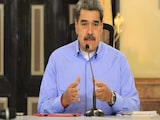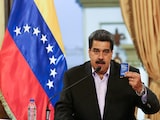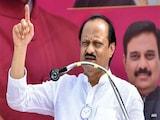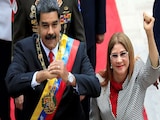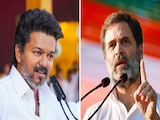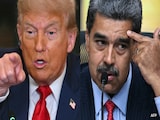A great voice has been stilled. For over 50 years, Kalaignar Karunanidhi carried the Dravidian Movement on his strong shoulders. The founder and ideological mentor of the movement, 'Thanthai Periyar' EV Ramaswamy Naicker, rejected the political path to social reform and, indeed, pitted his movement against CN Annadurai's DMK in the 1957 general election. 'Anna' had hardly become Chief Minister in 1967 when Yama claimed him two years later. Kalaignar Karunanidhi, then only in his early 40s, saw off all his rivals, Nedunchezian included, and became, over the half-century that followed, the torch-bearer of his party. Political fortune and misfortune saw him in and out of the Chief Minister's chair, but, within or without, the Rising Sun was Kalaignar.
His genius flowed from his tongue. And from his pen. He was an orator without peer, not just mouthing slogans but responding from the heart and the head in the most moving words to the deepest yearnings of the poor, the oppressed, the deprived. He understood them as few did. And when he became Chief Minister, he showed that this was not just empty sentiment but the political programme of a social revolutionary who saw human progress less in terms of GDP than as being initiated by thoroughgoing social liberation. Long before Mandal began resonating round the land, Kalaignar and the DMK worked for the overthrow of the dominant castes and classes and their alliance with the priesthood wrapped in the stranglehold of superstition, ritual, obscurantism and superstition. The late MSS Pandian in his spell-binding treatise, Brahmin & Non-Brahmin, quotes Kalaignar (p.83, footnote 56): "If the right to perform arachanas in Tamil is denied, and Sanskrit considered as devabhasha, then god and religion will be driven out of Tamil Nadu to North India"!
Karunanidhi is remembered for his spectacular contribution to reviving the Tamil language.
Kalaignar (which means 'Great Artiste') truly proved that the pen is mightier than the sword for he eschewed all violence and relied on the democratic electoral process to bring social justice to the people. As a script writer par excellence, he wrote stage and screen plays that converted the "touring theatre" and the cinema into powerful political and ideological tools to forge the social upheaval that would bring the lowest to the front of the stage. In collaboration with 'Anna' and MGR, cinema, as a medium of fantasy, gave way to social reform and the promotion of self-respect, the vey titles of the hit films paving the way to political transformation: from Velaikari (Servant Girl, 1949) to Nallavan Vaazhvaan (The Good will Prosper, 1961). Parashakti (1952), with its "overtones of atheism" and "rejection of idol worship and temple culture", as S Narayan puts it in a brilliant recent publication, The Dravidian Years, hit out at "Brahmins and Hindu customs" and promoted "Tamil pride". He quotes D Forrester: "always, either explicitly or below the surface, there was a political message in his films: the DMK is the party that does in real life what MGR does in the films".
Kalaignar truly proved that the pen is mightier than the sword
The food crisis of 1964 and the language agitation of 1965 tipped the scales and the DMK came to power in 1967. The Dravidian Movement - albeit in different political guises - has never since looked back.
The key to understanding the invincibility of the Dravidian Movement in Tamil Nadu is that soaring political rhetoric was translated into solid socially-oriented governance programmes - health, nutrition, education, family planning receiving the highest priority and ample funding - implemented, ironically, with extraordinary efficiency by senior officers of the very classes and castes that the Dravidian Movement was engaged in dismantling. Brahmins and other 'forwards' overwhelmingly dominated the higher reaches of the bureaucracy, the judiciary, the media, literature and the arts, and academia. Instead of taking them on frontally, Kalaignar co-opted them into a joint venture to overthrow oppressive social institutions that had long passed their "sell by" dates, ended the penury of the past by reordering priorities in government, and extended the utmost respect to individuals irrespective of caste that resulted in bureaucrats and others of the very castes being pulled up from their roots into active, enthusiastic participants in this thoroughgoing social revolution.
Massive crowd was seen outside Chennai hospital.
The economic fall-out followed. Indicators of economic and human development rose dizzyingly. Promises were kept, pledges redeemed. Alas, corruption too grew and reached monstrous proportions under Jayalalithaa, but as growth also raced ahead apace, the Tamil electorate seem to have acquiesced in corruption and nepotism being the price to pay for social justice and poverty alleviation in a highly contested political space.
It is perhaps for his spectacular contribution to reviving the Tamil language, Tamil culture, Tamil literature, and Tamil classics like Silapadiharam ("The Golden Anklet") that Kalaignar will be most remembered.
That was symbolized in the successful culmination during UPA-I of the long Dravidian crusade to secure for Tamil the constitutional status of a "classical language" on par with Sanskrit. It was the assertion and acceptance of Tamil identity that was the key to the DMK giving up its claim to a separate nation - 'Dravida Nadu' - and accepting an honourable place in the Indian mainstream. It was arguably the greatest triumph of 'unity in diversity'. Thereafter, Kalaignar was a proud Indian nationalist, standing up and speaking for the nation as a whole. In his passing, the nation has lost a great patriot.
(Mani Shankar Aiyar is former Congress MP, Lok Sabha and Rajya Sabha.)
Disclaimer: The opinions expressed within this article are the personal opinions of the author. The facts and opinions appearing in the article do not reflect the views of NDTV and NDTV does not assume any responsibility or liability for the same.





